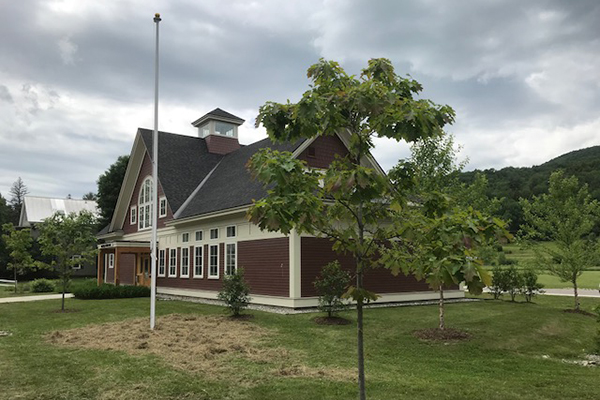In the face of COVID-19, the public has been asked not to gather in groups of more than 10 and to practice “social distancing.” What does this mean for town officials and select board members who are required by law to hold open public meetings? Here The Valley Reporter outlines the requirements of Vermont’s Open Meeting Law, the secretary of state’s suggestions toward following this law in the face of COVID-19, and the individual methods that the five Valley towns are creating to make their meetings accessible to the remotely participating public.
The Open Meeting Law, 1 V.S.A. §§ 310-314, states, “All meetings of a public body are declared to be open to the public at all times.” The law permits select board members and other members of public bodies to fully participate in meetings from a remote location provided that certain requirements are met.
First, all members of a public board must be able to be seen and heard throughout a public meeting. According to a memorandum released by Secretary of State James C. Condos and Deputy Secretary Christopher D. Winters on March 17, “Any member who participates remotely via electronic or other means must be able to hear and be heard throughout the meeting. This means that participating by speakerphone or Skype or Zoom, for example, can be appropriate, while participation by email is not.”
While board members cannot participate in a public meeting via email, the public can. In a phone interview with Eric Covey, chief of staff at the secretary of state’s office, Covey said, “We would advise that as a best practice, if public comments come in via email, they should be read aloud so that both members and anyone else attending can hear them to ensure a reasonable opportunity to participate.”
Second, each member who participates remotely must identify himself or herself when the meeting is convened.
Third, any vote that is not unanimous must be taken by roll call.
Finally, the Open Meeting Law requires a physical location requirement. Members must designate at least one physical location where a member of the public can attend and participate in the meeting, and at least one member of the body, staff member or other designee must be physically present at the location. “The Vermont Legislature is considering waving this physical requirement,” said Covey. Until then, the physical meeting requirement remains.
Still, the secretary of state’s memo encourages people to take advantage of electronically based participation tools rather than show up at public meetings. The memo reads, “Tools such as Zoom, Skype, or GoToMeeting can be used to maximize public participation and to provide community members who cannot physically attend with a way to make their voices heard.” Additionally, Condos and Winters suggest that public bodies offer and encourage the use of electronic conferencing tools as an alternative, though not exclusive, means of citizen participation in public meetings.
TOWNS WORKING ON PROTOCOLS
In the Mad River Valley, town officials are currently working on creating COVID-19-related safety protocols. However, as of now, while towns are working on emergency plans for continuing operations, plans are mixed for how to comply with the Open Meeting Law.
In Duxbury, select board chair Kevin Garcia has suggested to the board that it cancel any further meetings after March 23 until the beginning of May at the earliest. This would eliminate two meetings in the month of April. “Please note that at this time these are only my suggestions to the board. No action has been or will be taken until the board has the opportunity to meet,” said Garcia.
Moretown canceled its most recent select board meeting scheduled for Monday, March 16. The Moretown town office is closed until further notice, but town administrators are working from home and can be reached at their normal phone numbers and emails. “Right now, we are looking at all the options,” said Moretown Select Board chair Tom Martin on the topic of open public meetings.
In Waitsfield, on Monday, March 16, the select board livestreamed its meeting on MRVTV’s YouTube channel. MRVTV was able to then livestream that video to Waitsfield Cable. While select board members met in the Waitsfield town office, members of the public participated via conference call. However, on Tuesday, March 17, the Waitsfield town office closed and will remain closed through March 31. The town staff is still working, monitoring voice mail and email remotely. Additionally, meetings and events scheduled at the town office are canceled. The Waitsfield Select Board has not yet stated what virtual platform it will use to hold select board meetings in the future.
Likewise, Warren town officials are in the process of exploring virtual solutions to the open meeting dilemma. “We are reviewing procedures for future meetings. The challenge is, in order to comply with Open Meeting Law, there needs to be a place for the meeting so the public can attend. In our view this is counterproductive to the guidelines of social distancing and minimizing public gatherings. There is confidence we will find a solution as we explore different technology,” said Bob Ackland, Warren Select Board vice chair. Warren has canceled the select board meeting for March 24 and the Warren municipal building is closed, with town officials answering emails and phone calls remotely.
The Fayston Select Board will hold its March 24 meeting as planned, but will give members the option to attend the meeting remotely via teleconference. While the Fayston town office is closed, town officials continue to work remotely and are available via phone or email.






